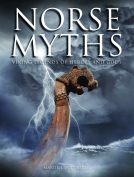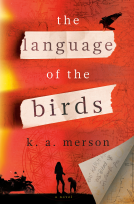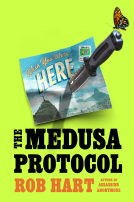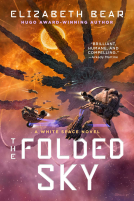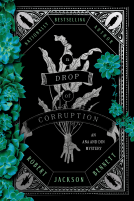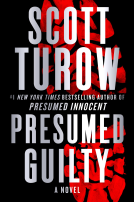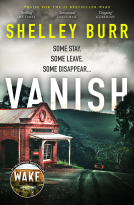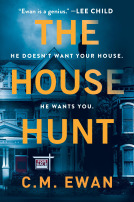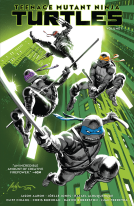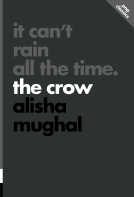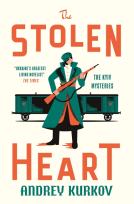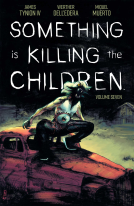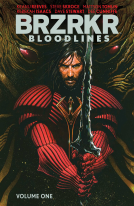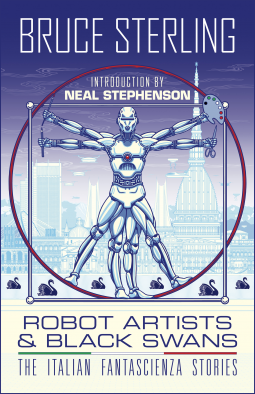
Robot Artists and Black Swans
The Italian Fantascienza Stories
by Bruce Sterling
This title was previously available on NetGalley and is now archived.
Send NetGalley books directly to your Kindle or Kindle app
1
To read on a Kindle or Kindle app, please add kindle@netgalley.com as an approved email address to receive files in your Amazon account. Click here for step-by-step instructions.
2
Also find your Kindle email address within your Amazon account, and enter it here.
Pub Date Mar 30 2021 | Archive Date May 18 2021
Talking about this book? Use #RobotArtistsandBlackSwans #NetGalley. More hashtag tips!
Description
The Godfather of Cyberpunk has emerged in this new collection of Italian-themed fantasy and science-fiction stories. Bruce Sterling now introduces us to his alter ego: Bruno Argento, the preeminent author of fantascienza. Sterling, writing as Argento, skillfully combines cutting-edge technology with art, mythology, and history.
“Sterling’s latest collection is rich and wide, a cross between Primo Levi and Jorge Luis Borges—with a touch of Phil Dick and Bill Gibson. I love it.”
—Greg Bear, author of The Unfinished Land
In the Esoteric City, a Turinese businessman’s act of necromancy is catching up with him. The Black Swan, a rogue hacker, programs his way into alternate versions of Italy. A Parthenopean assassin awaits his destiny in the arms of a two-headed noblewoman. Infuriating to both artists and scientists, a robot wheelchair makes uncategorizable creations.
Bruno Argento is the acknowledged master of Italian science fiction. Yet that same popular fantascienza author also is known in America—as Bruce Sterling. In Robot Artists and Black Swans, we present the first collection of their uniquely visionary Italian-themed fiction, including tales never before published in English.
A Note From the Publisher
Advance Praise
Advance Praise for Robot Artists & Black Swans
“Sterling’s latest collection is rich and wide, a cross between Primo Levi and Jorge Luis Borges—with a touch of Phil Dick and Bill Gibson. I love it.”
—Greg Bear, author of The Unfinished Land
“Sterling is a visionary, equally at home writing about the future as he is of the past, and his inspired prose continues to provoke and satisfy. For his latest foray in storytelling, Sterling adopts the Italian persona, Bruno Argento, ‘an unlikely “cyber-punk” Texan who somehow decides to become Turinese,’ in order to mine the treasures of his adoptive country in this series of fantastic (or fantascienza) stories. As Argento, Sterling embraces his new identity wholeheartedly, evoking such former denizens of the locale as Italo Calvino, Primo Levi (who wrote sf under the moniker Damiano Malabaila), even Friedrich Nietzche (who resided there while madness overtook him). In the titular ‘Black Swan,’ a tech blogger follows a suave industrial spy across multiple Turins, each one on a different trajectory—watch for cameos from Nicolas Sarkozy and Carla Bruni. The robot artist of the title appears in ‘Robot in Roses,’ in which an art critic accompanies (and attempts to explain) The Winkler, a robot in the form of a wheelchair, as it navigates the ruins of a radioactive future Rome. Sharp, witty, erudite dialogue keeps the stories moving along.”
—Booklist
“Imagine an American science fiction writer from Texas, transplanted to Italy, now writing in the voice of an Italian alter ego, and you might have a sense of the gonzo delights inhabiting Bruce Sterling’s Robot Artists and Black Swans.”
—Washington Post
“It's all here, this time with an Italian flavor: the inventive tech, the meticulously detailed futures, the stylish and sardonic prose, the creative adjectival combinations. Set in Turin, Rome, and an upgraded Hell (Italian designers are good), these stories could only have been written by Bruce Sterling. Treat yourself to one of the most original voices in science fiction.”
—Nancy Kress, author of After the Fall, Before the Fall, During the Fall
“Bruce Sterling ‘literally’ takes you to Hell and back and back in this sprawling, delirious tour of an Italy jarred just slightly off-kilter, parallel universe, nineteenth-century terrorists and bicephalous recluses, cigar-smoking mummies and wandering performance artists who happen to be wheelchairs.”
—Peter Watts, author of The Freeze-Frame Revolution
"Bruce Sterling’s Italian short fiction is like an Asti Spumante from the vineyard where futurism was first fermented.”
—Charles Stross, author of the Merchant Princes Series
“A delightful mix of high fantasy and futuristic speculation featuring royalty, noblemen, bandits, and other scoundrels.”
—Kirkus
“Sterling’s clever, compassionate work will appeal to fans of intelligent cyberpunk.”
—Publishers Weekly
“Utterly unlike Sterling and unmistakably the work of Sterling: Robot Artists & Black Swans is a sardonic, madcap tour through the grand passions and strange centuries of Italian sf.”
—Cory Doctorow, author of Walkaway
“Full of clever and original lateral-thinking insights into society and the universe, still rife with outsider characters and streetwise scenario . . . [a] thoroughly entertaining collection of nimble and bright tales.”
—Locus
“Bruno Argento is the Calvino of the Cyberpunks, and in this new collection Bruce Sterling channels his Turinese alter ego to conjure dark and wondrous visions of alternate Europes past, present and future. A perfectly curated selection of the best recent works from a living master of short form SF, Robot Artists & Black Swans shows what can be achieved when a writer fully embraces the possibilities of becoming a character in one of his own stories.”
—Christopher Brown, author of Tropic of Kansas
“Sterling emerges as an Italian cultural figure, within hailing distance of Italo Calvino and Federico Fellini.”
—Rudy Rucker, author of The Hacker and the Ants
“Playfully spanning a range of genres, modes and ideas, the Bruno Argento stories show one of the great science fictional minds at work, processing exciting new ideas in a novel context and reaching towards an increasingly uncertain future . . . Both ‘Robot In Roses’ and ‘Black Swan’ are powerful examples of Sterling at his best, and are reason enough on their own to make the collection essential reading.”
—Fantasy Hive
Marketing Plan
—Review copy mailings to leading newspaper, magazine, and fiction reviewers, and specialty science-fiction-oriented outlets such as Nature, Wired, and Ars Technica
—Digital ARCs available via NetGalley, Edelweiss, and Goodreads; additional print available upon request
—Online promotional rollout to include coverage in the U.S. and Italy, via blog tour, interviews, radio, and podcasts
—Social media push by the author and publisher via Facebook / Instagram / Twitter / Goodreads
—Author appearances at bookstores, trade shows, genre-themed conventions, and virtual events TBD
Available Editions
| EDITION | Hardcover |
| ISBN | 9781616963293 |
| PRICE | $25.95 (USD) |
Featured Reviews
 Joseph K, Reviewer
Joseph K, Reviewer
I will have to admit that I've not read much of Bruce Sterling's work. I read THE DIFFERENCE ENGINE, of course; as much I was not a fan of cyberpunk back in the day (and to this day I don't know how I feel about it - after all, I still haven't read the most influential of all cyberpunk novels, NEUROMANCER, a book that changed the field of sf forever and made William Gibson a household name), I couldn't resist checking out the pairing of two of the most famous writers of cyberpunk back then. I also read Hugo nominee ISLANDS IN THE NET, but that really was about it. So yeah, it's been 30 years since I've read any Bruce Sterling, at least that I know of.
Robot Artists (I'm going to shorten the title because typing the full title multiple times just gets in the way) is a collection of Sterling's Italian themed science fiction. In order to tie the stories together, the reader is introduced to Sterling's alter ego, Bruno Argento, Italy's famed writer of "fantascienza" (Yes, I did look it up, as I was unfamiliar with the term, even though one can figure out what it means just by looking at it.). Robot Artists, then, is a collection of stories by Bruno Argento.
Several of the stories were indeed published in the Italian market, which surprised me at first. There are introductions by both Neal Stephenson (speaking of cyberpunk royalty) and Bruno Argento himself. As of this writing I'm still not sure whether Sterling actually publishes in Italy under the Bruno Argento name or if this is a marketing tactic - and I guess that's the point, isn't it?
I have a couple of favorite stories in the collection. "Black Swan", the story of a technology blogger who encounters a hacker who may have discovered the existence of a Black Swan, something that could affect the balance of world governmental powers. But is it just that, or is it something more involved, something more complex? The blogger and the hacker travel to different versions of Italy, while Luca (the blogger) has to determine if he wants to write about what Massimo (the hacker) has shown him. It's something of an ethical decision, and something of a, well, moral decision.
The other story that is a favorite is the last story in the collection, "Robot in Roses". On the surface, the story is about one Wolfgang of Nuremburg, who is charged with following around the world a Japanese robotic wheelchair named Winkler, which is an artist. Wolfgang catalogs every place Winkler goes and every piece of art it creates. Things get complicated when he encounters Dr. Jetta Kriehn, who wants to destroy Winkler. The story rapidly turns into a dialog about art and science and everything in between. It's really a lot of fun. I enjoyed it quite a bit.
Another story I enjoyed is "Esoteric City", in which time is up for Achille Occhietti. As a result of his dark arts, he is sentenced to Hell, which just happens to be conveniently located beneath Turin. Before he meets with Satan - in Occhietti's back yard, because he had to leave Hell to at least attend his wife birthday party - he retrieves the Holy Grail for his final encounter with Satan. Enjoyable stuff.
Other stories include "The Parthenopean Scalpel", wherein an assassin falls in love with a two headed woman, and bombs are involved; "Kill the Moon", a short and silly tale of an Italian bemoaning the fact that his country is the only one going to the moon, and doesn't everyone see the silliness of it all?; In "Elephant On Table", Tullio and Irma are caretakers of a Shadow House, whose owner, the Chief, pops in every once in a while for cards and games and such. Of course, there is much more to it than that, including the usual elephant on the table; and "Pilgrims of the Round World", a story of the closing of the Inn of Saint Cleopha (who herself is kept in a jar) in Turin. Along the way we have royalty, armies, wars, inept queens, and all sorts of unusual elements.
A lot of punch is packed into these seven stories. I didn't know what to expect out of this collection, but in the end I was thoroughly entertained. If Bruno Argento does indeed exist, then the residents of Italy are lucky to have him.
